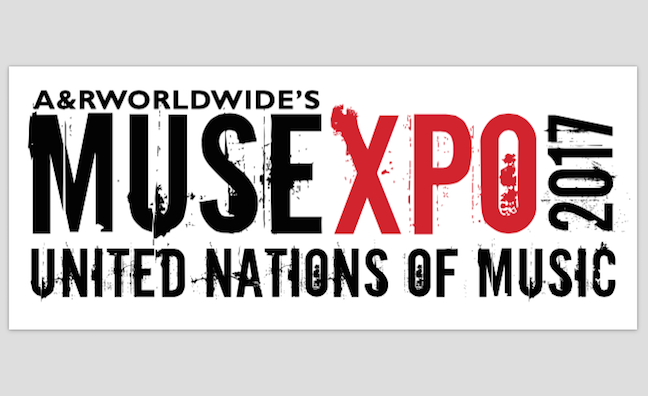The annual MUSEXPO conference kicked off on Sunday in Los Angeles, bringing its usual mix of high-profile speakers and industry insight.
Topping the bill was legendary A&R man Jason Flom, in conversation with Music Week editor Mark Sutherland. Flom, now founder & CEO of Lava Records and Lava Music Publishing, has also run Atlantic, Virgin and Capitol in his time, not to mention discovering acts from Twisted Sister to Katy Perry and Lorde, and had a wealth of stories about his time in the music business, from losing his virginity at a Yes concert to being fired by Warner Music because of a poem he wrote about his boss.
Mostly though, he addressed the changing A&R process.
“Everyone is always wrong, that's the beauty of the music business,” he said. “Everybody is wrong almost all of the time, including me. It’s just when I get it right, I get it really right. A&R is a dangerous game. Research has become a very important tool in A&R, but I am more the needle in a haystack guy.”
Flom made his name working with rock bands and said he remains hopeful the genre can make a comeback as a chart force. But he also warned: “There's not going to be another Beatles, don’t hold your breath, there's not going to be another Bob Dylan. That's not going to happen again.”
He was more confident the business itself is now set for a genuine recovery after years of decline.
“No other multi-billion dollar business in history has ever been disrupted to the extent the music business was,” he said. “People thought it would become extinct because music was free. The naysayers turned out to be wrong. Every time a business disappeared in the past it was because there a better business came in that you had to pay more for. Horses and buggies went out of style because somebody invented the car. But never has a business gone through this type of destruction due to illegal activity. The good news is now it’s up.”
Flom was followed by the Future Of A&R panel, in which executives debated whether artists needed to write their own material or not.
“We want people that are more talented than being the Ferrari with no gas,” said Republic Records’ Jason Jordan. “If they aren’t writers, what do they stand for, what are they speaking about, who’s putting the words in their mouth?”
“With that philosophy, you’re passing on Aretha Franklin,” countered Atlantic’s Pete Ganbarg. “If someone is that gifted, we want to be in business with them.”
Meanwhile, British producer Alex Da Kid, owner of KidInAKorner Records, said it was important to fully commit to any new artist you did sign.
“When I sign someone, it’s like getting married,” he said. “I’ve never dropped anyone. I’m going to be in their life for a long time.”
Red Bull Records MD Greg Hammer also gave a keynote, saying the label’s unique status as a division of a drinks company let it be more artist-friendly than other labels.
“The music biz is a business,” he said. “It’s become a lot more difficult to make a dollar over the last 15 years and that means somebody’s going to get screwed – and it’s usually the artist. But we can afford to not screw people over, because we sell six billion cans of energy drink every year.”
Hammer said this also enables the label to take an alternative approach to artist development.
“We are a different type of company so we need a different type of artist,” he said. “Writing their own material is integral for us. We sign artists with a 5-10 year plan.”
Hammer said they pursued this policy despite technology having a big impact on the way music is made.
“The beauty of technology is anybody can make music now,” he said. “The challenge is not everybody should be making music. There’s infinitely more bad music out there, there isn’t infinitely more great music.”
The day concluded with the Music Supervision 4.0: The Future Of Synchronisation panel, hosted by Music Week’s Emmanuel Legrand, which saw executives debate the changing landscape for TV and movie placements.
“Singer-songwriters used to get 80% of syncs,” said 20th Century Fox TV’s Ward Hake. “Now anything goes. The big change is the influence of hip-hop [placements] on TV.”
The panel agreed that supervisors were now using more global music and more obscure tracks, with Freeform’s Tricia Holloway pointing out the importance of maintaining up-to-date contact information on artists’ sites, while SuperMusicVision’s Thomas Golubic said there was reduced demand for cover versions.
MUSEXPO 2017 continues tomorrow (Monday). Stay tuned to musicweek.com and our Twitter feed for updates.









